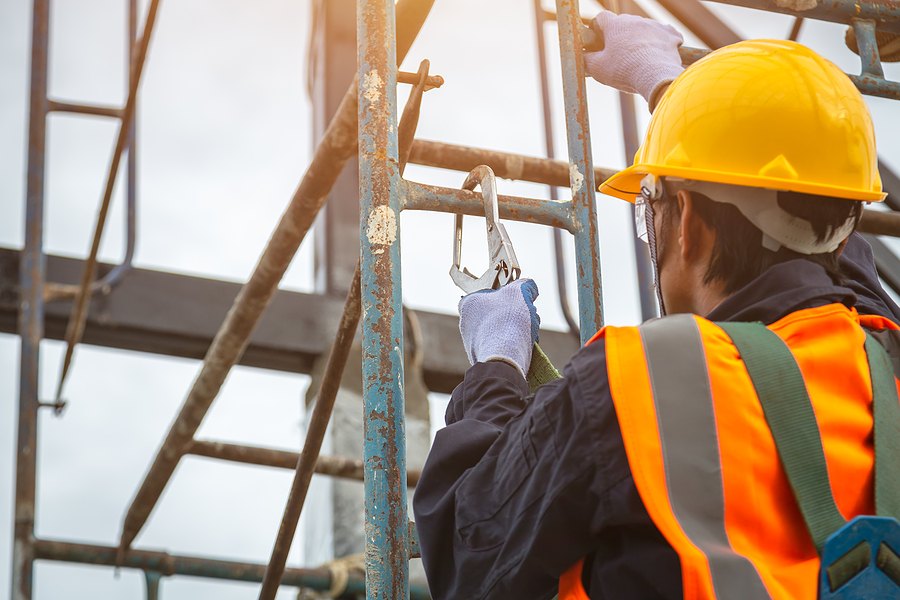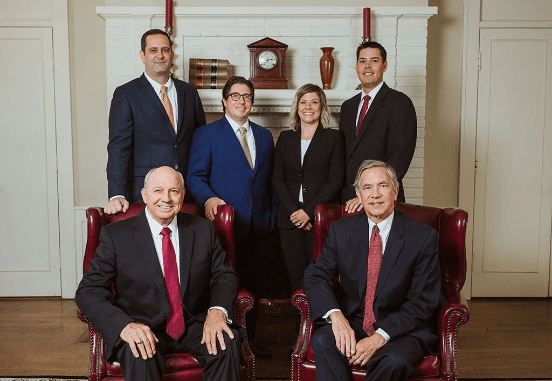 Getting hurt while on the job is a possibility for any worker, but for some jobs, the risk is significantly higher. Workplace injuries can include falls, exposure to dangerous substances such as potential explosive / flammable materials, and equipment accidents. According to a recent investigation and the Census of Fatal Occupational Injuries (CFIO) from the Bureau of Labor Statistics, eight specific occupations were considered to be the most dangerous in Florida.
Getting hurt while on the job is a possibility for any worker, but for some jobs, the risk is significantly higher. Workplace injuries can include falls, exposure to dangerous substances such as potential explosive / flammable materials, and equipment accidents. According to a recent investigation and the Census of Fatal Occupational Injuries (CFIO) from the Bureau of Labor Statistics, eight specific occupations were considered to be the most dangerous in Florida.
Construction and roofing
It was reported that 84 people lost their lives in construction accidents in 2018. Construction occupations can include a number of different tasks, including road and home construction. Jobs in roofing are known to be notoriously unsafe. Because workers are climbing on and off roofs, the chances of losing their balance and falling is quite high. If the worker is inexperienced or not professionally trained, this possibility increases even more. According to the Bureau of Labor Statistics, for roofing alone, 32 fatalities for every 100,000 workers were reported in 2018.
Transportation and material moving occupations
Workers in the transportation and material moving industry are responsible for moving materials and goods in essentially all areas of the economy. These occupations include truck driving and delivery workers. The long hours involved in trucking and transportation, the heavy loads and the physical labor involved often make these jobs innately dangerous, which is why the investigation found that 76 Floridians were killed while on the job in this industry in 2018.
Building and grounds cleaning and maintenance occupations
Jobs in the building and grounds cleaning and maintenance industry includes lawn care, landscaping, and cleaning for large companies, businesses, and universities, among others. Individual homeowners often hire individuals to handle these types of jobs for them. These occupations also include interior cleaning and janitorial work. Due to the nature of these jobs, the exposure to chemicals and the physical labor needed to complete the job, these jobs are considered to be more high risk, which is why the investigation found that 40 Floridians working in the building and grounds cleaning and maintenance industry were killed during this line of work in 2018.
Installation, maintenance, and repair occupations
Jobs in installation, maintenance and repair occupations include mechanics or technicians in the aviation, automotive, electrical, and heating and cooling industry. Due to the heavy equipment, chemicals and electrical voltage involved in many of these occupations, these jobs tend to be more dangerous, which is why the investigation found that 38 people in Florida died while working in these occupations.
Protective service occupations
Members of the protective service industry include police officers, firefighters, detectives, correctional officers, and probation officers. Since most of these jobs involve willingly going into dangerous and volatile situations, it is also no surprise that these occupations top the list of most dangerous jobs in Florida with 17 people killed in 2018 in the line of duty.
Sales and related occupations
Sales may not seem like an inherently dangerous job, but the fact that many sales jobs involve going door-to-door, directly going into situations where the sales person may not know who is on the other side of the door and what danger may be awaiting. Commuting to and from different sales jobs is a necessity, which further increases the risk of being involved in an auto accident.
Farming, fishing, and forestry occupations
The heavy equipment needed to perform the job duties involved in farming, fishing, and forestry makes these jobs particularly dangerous, as well, which is why these industries consistently fall into the category of most deadly jobs in Florida. The investigation reported that 12 Floridians were killed while performing their job in one of these occupations.
Production occupations
Production workers include individuals working in factories, food-production facilities, and automotive manufacturing facilities. These workers are continually exposed to chemicals and other pathogens, as well as heavy machinery and tools, which makes these jobs particularly dangerous. The investigation reported that 10 Floridians died while working in production jobs in 2018.
Victims of work-related injuries are faced with damages that can range from minimal to serious. Injuries on the job can result in time away from work, transfer, or restriction on what activities a person is able to participate in.
There are direct and indirect costs associated with workplace injuries. Direct costs are costs that are anticipated and include emergency care, medical bills, rehabilitation, and medication costs. Indirect costs are less obvious. These hidden costs, that many might not initially recognize, include, increased costs of insurance, lost wages, loss of future income, etc. In some incidents the indirect costs can outweigh the direct costs related to an injury.
Third-Party Liability
Workers’ compensation claims can compensate the injured employee for his or her injuries, but the worker can also pursue a legal claim for damages against the third-party who caused the injury. Florida law calls this third-party liability where a person’s injury is caused by another person or entity’s negligence or reckless actions. For example, someone working in construction may be on the road, heading to a job site, when his or her vehicle is struck by a drunk driver. Even though the person is on the road due to a job, that person’s injuries can be compensated not only by workers’ compensation but also by the drunk driver who caused the accident. Another example would be if an independent contractor who is working alongside a person working in construction or manufacturing does something that is reckless or negligent and injures the construction worker. In this situation, the injured employee not only has a workers’ compensation claim but also a claim against the liability insurance of the person who is at-fault.
In these situations, it is important that the injured party proves that the third-party was negligent and at fault, which requires proof of duty of care, breach of duty, causation and damages. If the person is successful, he or she can receive compensation for injuries from this third-party individual or entity. This compensation could come from the at-fault party’s liability insurance. Additionally, it could come from the injured party’s uninsured motorist or personal injury protection coverage. The injured party may attempt to sue his or her employer personally for injuries, but these types of awards are rare. Proceeding with workers’ compensation on top of a third-party liability claim is normally the best course of action.
Workplace injuries can be particularly catastrophic and traumatic for the injured employee, as well as his or her family. Often employees who fall victim to workplace injuries are forced to bring suit to recover workers’ compensation benefits for their injuries, lost wages, or the negligence on the part of their employers. At Wooten, Kimbrough, Damaso & Dennis, P.A. our personal injury attorneys have been defending the rights of injured workers and their families since 1966.

Legally Written and Reviewed by a Managing Partner
Wooten, Kimbrough, Damaso, and Dennis, P.A.
Our content is written and reviewed by our founding attorneys Butch Wooten, Orman Kimbrough, Mike Damaso, and Tom Dennis. Helping the injured since 1966, they’ve successfully handled thousands of personal injury cases across Florida. Whether you’re a Florida resident or an out-of-state visitor injured in Florida, we’re dedicated to providing clear and reliable information to help you navigate your legal options confidently.




